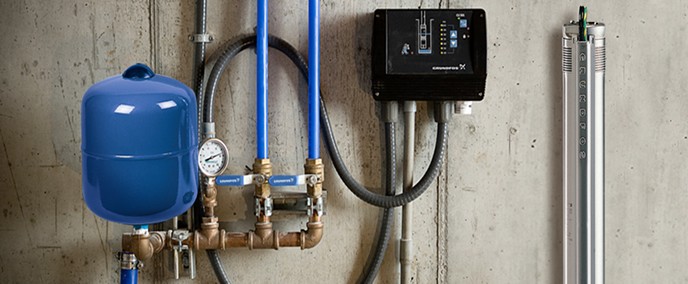Recognizing the Secret Elements of Effective Water Filtering Equipments

Relevance of Water Filtration Equipment
Water filtration systems play a vital role in ensuring accessibility to tidy and risk-free drinking water by effectively removing pollutants and contaminations. These systems are vital in dealing with the growing worries over water high quality and the potential health risks linked with consuming contaminated water. By utilizing different filtration mechanisms such as reverse osmosis, turned on carbon, and UV sanitation, water filtration systems can successfully remove hazardous substances like bacteria, viruses, hefty steels, and chemicals from the water.
Furthermore, water filtering systems help to boost the preference and smell of water by getting rid of chlorine, debris, and other contaminants that can impact its top quality. Pump repairs & installation. This improvement in water top quality not just makes it extra tasty however also encourages people to drink an appropriate amount of water daily, promoting better hydration and overall health and wellness
Types of Purification Parts

Physical filters are designed to physically strain out impurities from the water. These filters can be constructed from products like ceramic, carbon, and even sand, and they work by capturing particles larger than the filter's pores as water passes via.
Chemical filters use different chemical procedures to eliminate pollutants from the water. Instances consist of turned on carbon filters, which adsorb impurities, and turn around osmosis membrane layers, which use pressure to different impurities from the water.
Organic filters use living microorganisms like algae or germs to damage down organic issue and pollutants in the water. These filters are usually used in wastewater treatment plants or all-natural water filtration systems.
Recognizing the various sorts of filtration parts is critical for picking the most suitable water filtering system for specific purification requirements.
Feature of Sediment Filters
Sediment filters play an important function in water filtering systems by successfully recording strong bits suspended in the water. These filters are generally the very first line of protection in a filtration system, removing larger particles such as sand, silt, dirt, and rust before the water relocates through finer purification stages. By capturing these debris, the filters prevent them from reaching downstream components, hence prolonging the life expectancy and effectiveness of the whole system.
Disregarding this maintenance can lead to clogging, lowered water circulation, and jeopardized purification efficiency. Overall, debris filters are important elements that contribute significantly to the efficiency of water purification systems.
Role of Activated Carbon Filters
Playing a critical duty in water filtering systems, turned on carbon filters are crucial in getting rid of contaminations and pollutants from the water supply. As water passes through the filter, the turned on carbon draws in and holds onto the contaminations, making sure that the water that comes out on the other side is cleaner and more secure for usage.
Turned on carbon filters are highly effective at improving the taste and smell of Home Page water by reducing chemicals that can impact its high quality. Due to their adaptability and dependability, triggered carbon filters are a vital part in guaranteeing that water is detoxified to the greatest standards before getting to consumers.
Recognizing Reverse Osmosis Solutions
Reverse osmosis systems are sophisticated water purification systems that use a sophisticated process to eliminate impurities and impurities from drinking water. These systems work by using stress to the water, compeling it Check Out Your URL through a semi-permeable membrane.
One secret advantage of reverse osmosis systems is their capacity to remove a large range of impurities, consisting of heavy metals, liquified solids, infections, and bacteria. This makes them very reliable in boosting the overall quality and security of alcohol consumption water. In addition, reverse osmosis systems are relatively low-maintenance and can be installed under the sink or in a central filtration system, offering convenient access to clean water throughout the home. Generally, recognizing just how reverse osmosis systems work can help individuals make informed choices concerning their water purification requirements.
Conclusion
Finally, efficient water filtering systems are essential for ensuring secure and clean alcohol consumption water. The essential elements of these systems consist of debris filters, activated carbon filters, and turn around osmosis systems. By understanding the read more function and function of each component, people can make enlightened choices when choosing a water filtration system. It is necessary to prioritize the top quality of water in order to promote total health and wellness and well-being.
Water purification systems play a vital role in making sure accessibility to safe and clean alcohol consumption water by efficiently eliminating contaminations and contaminants. By using numerous filtration systems such as reverse osmosis, turned on carbon, and UV sterilization, water filtering systems can successfully eliminate hazardous compounds like germs, viruses, hefty steels, and chemicals from the water supply.
Debris filters play an essential function in water purification systems by effectively capturing solid bits put on hold in the water (Well Pump Replacement).Playing an important duty in water purification systems, turned on carbon filters are instrumental in removing pollutants and impurities from the water supply.Reverse osmosis systems are innovative water filtration systems that employ a sophisticated process to eliminate impurities and contaminations from alcohol consumption water